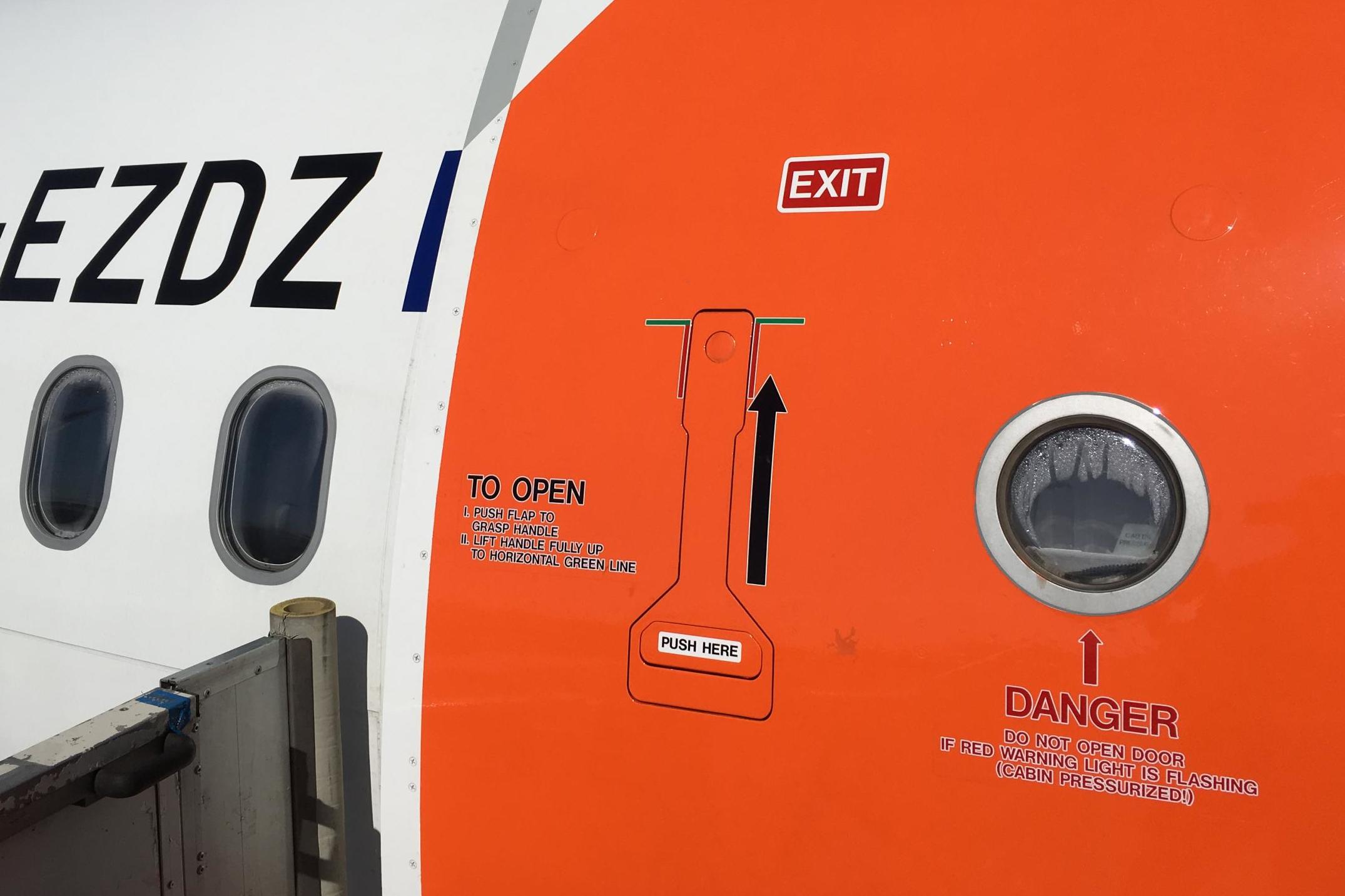How to avoid being offloaded on an overbooked flight
Plane talk: overbooking should be a benefit for all, but airlines must improve their handling of it or face a crackdown

Your support helps us to tell the story
From reproductive rights to climate change to Big Tech, The Independent is on the ground when the story is developing. Whether it's investigating the financials of Elon Musk's pro-Trump PAC or producing our latest documentary, 'The A Word', which shines a light on the American women fighting for reproductive rights, we know how important it is to parse out the facts from the messaging.
At such a critical moment in US history, we need reporters on the ground. Your donation allows us to keep sending journalists to speak to both sides of the story.
The Independent is trusted by Americans across the entire political spectrum. And unlike many other quality news outlets, we choose not to lock Americans out of our reporting and analysis with paywalls. We believe quality journalism should be available to everyone, paid for by those who can afford it.
Your support makes all the difference.Around now, Charlotte Barton of Exeter should have been returning from a skiing holiday in the Alps. She had arranged a special birthday trip with friends in the mountains.
The closest she got, though, was sitting aboard an easyJet Airbus at Bristol airport. As you may have read, she was told to give up her double-booked seat and to leave the aircraft.
Social media hath no fury like its response to a story of a woman offloaded. Twitter reaction to the dreadful treatment that Charlotte experienced was swift and mostly angry. And there were plenty of questions.
Matthew Wasley wanted to know: “What should you do if you find yourself in this situation?” Well, there’s very little apart from knowing your rights and insisting on them. If the captain (or his/her representatives) say you’re off the plane, that’s that. Your only scope for negotiation is: what happens next?
It is possible in this case, for example, that if Charlotte had been put in a cab straight to Heathrow for a flight to Geneva before 9am on BA or Swiss, she might have rescued her holiday. Instead, she was dispatched to Gatwick, where the easyJet flight would have arrived in Geneva too late for her booked transfer. On one of the busiest days of the winter, no space was available for the rest of the day.
What can you do to prevent yourself being in Charlotte’s most uncomfortable position?
From all the recent cases of overbooking involving easyJet, it appears that anyone who pays extra for an assigned seat removes the risk of being removed. Lisa R writes: “Paying extra for a specific seat is supposed to be just that, an extra. Once you require people to pay that fee to insure that they are allowed to fly at all, it is no longer an ‘extra’.”
Indeed, some people may see it as the “fee to avoid being offloaded through overbooking”.
Having checked in luggage may help, too. Once things are allowed by ground staff to get to the stage where cabin crew become aware of the overbooking problem only when everyone is on board, the flight is likely to be delayed. (Charlotte’s plane eventually left 36 minutes behind schedule.)
Planes cannot fly with a bag that has been checked in by a passenger who is not on board. So it will speed things up to evict someone with only cabin baggage.
Talking of things that shouldn’t happen, surely overbooking is wrong? Well, this wasn’t a typical case of overselling the available seats: the plane was downsized by six seats from the intended 186-seater. But easyJet and many other airlines often sell more seats than there are available.
While this might sound a dodgy practice (and Robert M describes it as “fraud”), in fact when overbooking is handled well it provides benefits all round.
On average, says easyJet, five per cent of passengers fail to turn up for their booked flight.
Ken Imrie asked: “Who cares if five don’t turn up?”
Quite a lot of people, including me. By selling some seats twice, planes fly fuller. The practice reduces the per-person impact of the flight on the environment, and increases the airline’s revenue – which may mean fares are lower than they would otherwise be. Distressed travellers who really need to take a specific flight at short notice are able to buy a ticket even when the plane is technically full.
All that is required is for the rules on overbooking to be followed, and for the airline to be generous; it, after all, is aiming to make a profitable bet every time it overbooks.
If the airline overbooks, it should start offering non-committal incentives for volunteers in the departure lounge. The deal, which I have often accepted, is this: hang back, and if more people turn up than there are seats available, we’ll pay you for taking a later flight.
But it depends on the airline upping the incentive for volunteers until enough agree to clear the excess. Then everyone is happy.
When everything is voluntary, no one gets upset. Overbooking has earned a bad rap because it has been mishandled. Airlines must take more care – and compassion – or face a crackdown.
Join our commenting forum
Join thought-provoking conversations, follow other Independent readers and see their replies
Comments